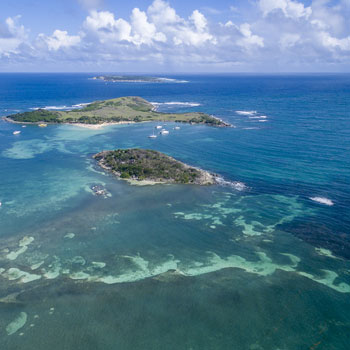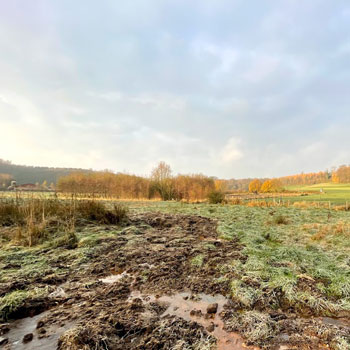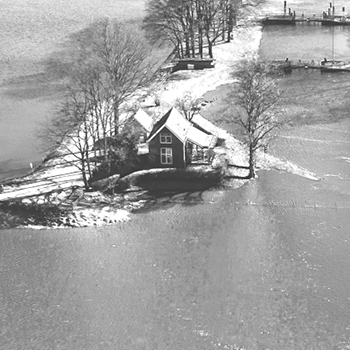Water management in consultation with local people
Natural water storage such as wetlands or floodplains can be a weapon in the fight against floods and droughts. This benefits local residents, but also contributes to better water quality and creates new natural habitats. To bring about such solutions, water management professionals work in co-creation with local stakeholders.
Tool to reach decisions together
Bogatinoska will present the findings of the Co-Adapt project in Chicago. This European Interreg2Seas project identifies what challenges and obstacles emerge in this process of co-creation. The project relates those challenges and barriers to existing tools for designing natural solutions in complex decision-making processes. Bogatinoska and her colleagues developed a framework for knowledge exchange involving several such tools and activities. One example is the nominal group technique (NGT). This technique is normally used for structured decision-making in industry and academia. The Co-adapt project has developed the technique so that it can also be used for planning and decision-making in water management. Read more about her presentation The Nominal Group Technique for the Participatory Design of Nature-based Solutions in Brook Catchments.
Collaborative approach to increase soil storage of greenhouse gases
The second presentation is about co-creation of nature-based solutions to sequester more carbon in soil. Soil - alongside the ocean - is an important carbon storage site. Together, ocean and soil can absorb more than half of all emitted greenhouse gases. To naturally optimise soil carbon storage and sequestration, changes in soil management are needed. The most efficient way to achieve those soil management changes is through co-creation together with local stakeholders. A good ex-ante evaluation of the impact of different solutions can help make well-considered decisions.
Calculating carbon sequestration for different scenarios
In her second conference contribution, Bogatinoska presents the impact of two different land-use scenarios for an area on the Dutch-Belgian border: a scenario with soil management as it is today, and a scenario with co-designed natural adaptations. A mathematical model calculates soil carbon storage in both scenarios. That mathematical model combines different types of data about the area and also takes into account different climate change scenarios. The modelling approach presented by Bogatinoska is part of the multi-year European research project H2020 EIFFEL. Read more about her presentation Evaluating Nature-based Solutions Aimed at Soil Carbon Sequestration Through Land Use Change.
About AGU22
The AGU (American Geophysical Union) conference is one of the most important gatherings of scientists in the field of earth sciences. More than 25,000 participants from more than 100 countries come together to share knowledge. More information about the conference and the programme can be found on the conference website.
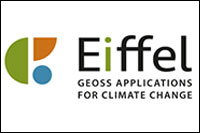 |
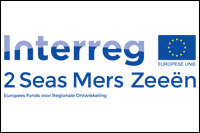 |

